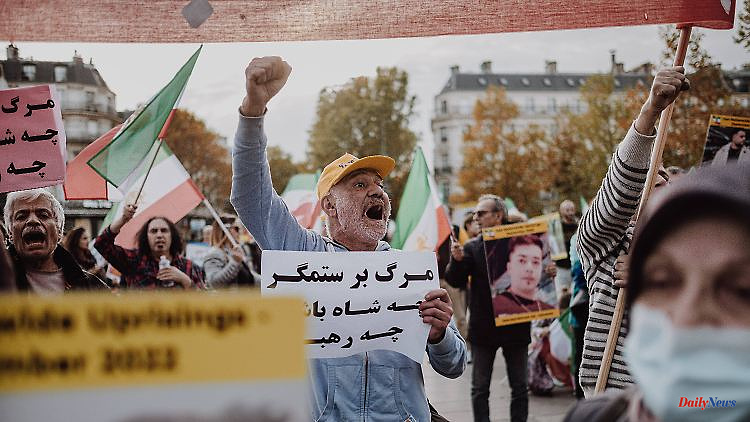Iran is shaken by a nationwide wave of protests. Because of the tense situation, the Federal Foreign Office is now appealing to all Germans to leave the country. The "escalating, violent action by the Iranian security forces requires this step," it says.
In view of the violent crackdown by the Iranian security forces against the nationwide protests, the Federal Foreign Office has asked all German nationals in Iran to leave the country. For Germans, there is "the concrete risk of being arrested arbitrarily, interrogated and sentenced to long prison terms," according to the updated travel and safety instructions. The "escalating, violent action by the Iranian security forces requires this step," said a spokesman for the Federal Foreign Office.
The request was "necessary to take account of the changed security situation and the protection of German nationals still in the country," explained the spokesman. The occupation of the German embassy in Tehran was not affected by the request, but continued its work.
In particular, dual nationals who have Iranian citizenship in addition to German are "endangered," according to the travel information. In the recent past there have been a "numerous arbitrary arrests" of foreign nationals.
As the Federal Foreign Office went on to explain, interrogations and arrests of German-Iranian dual nationals are "frequent and often for no comprehensible reason" in Iran. Relatives of detainees are also regularly put under a lot of pressure. The consular support options from the German embassy in Tehran are "considerably limited to impossible".
There has been a nationwide wave of protests in Iran for more than six weeks - the largest in years. The security forces are cracking down on the protests with great severity. These were triggered in September by the death of the young Kurd Mahsa Amini after her arrest by the so-called moral police.












